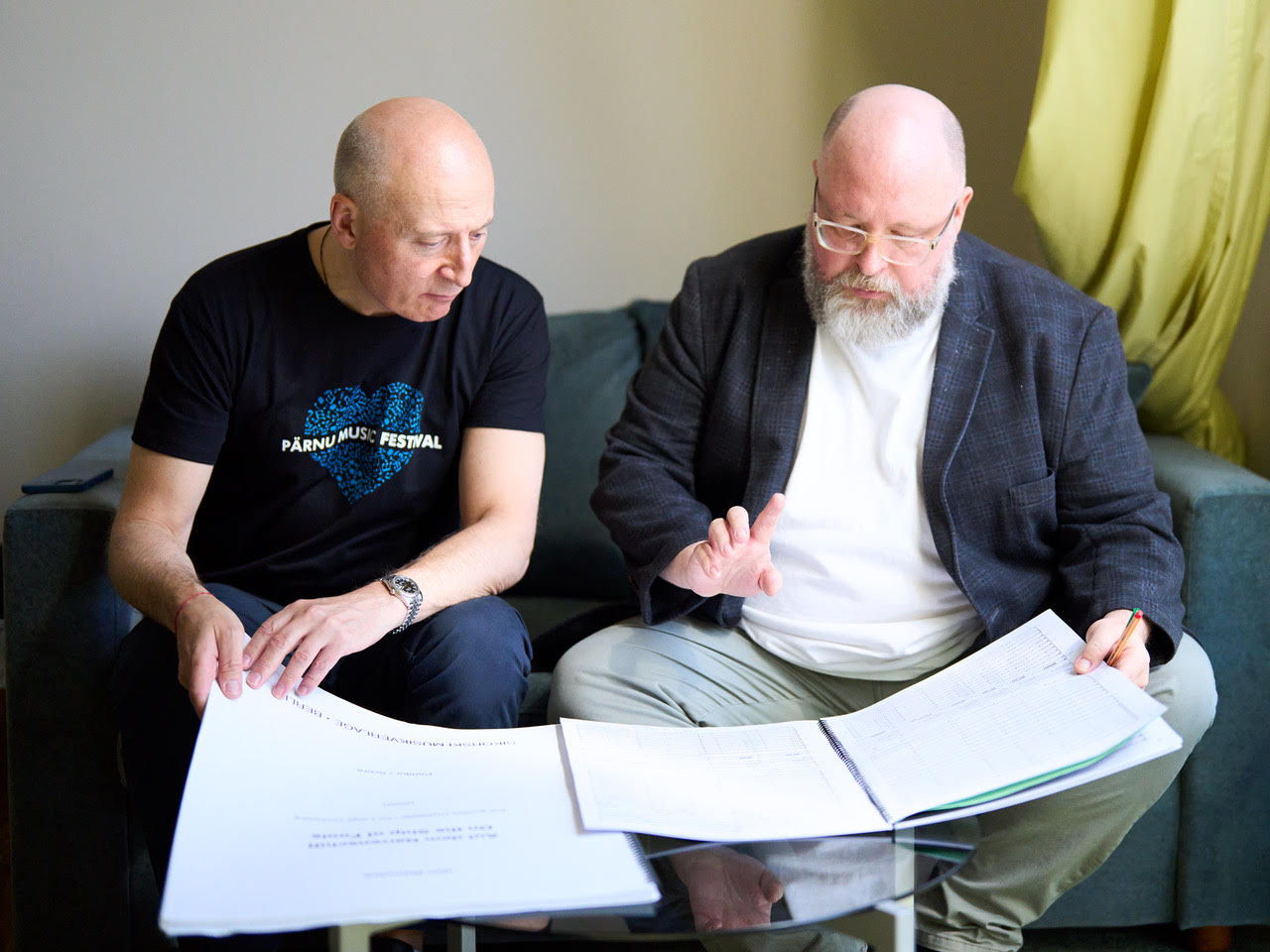World premiere performance 15 July – Estonian Festival Orchestra and Paavo Järvi
”As in 2016 and 2018, Paavo Järvi approached me with the request to write a new orchestral piece for him and the Estonian Festival Orchestra. I was happy, but also thought long and hard about what kind of piece this could be. Then the idea of composing an independent scherzo seemed appealing to me. Scherzi don’t necessarily have to be funny. They can – as we know from Chopin or Bruckner – also become spooky, grotesque or demonic. But I wanted to write a piece like this in terms of tempo or the gesture of movement. I worked here with the simultaneity of different tempi. There is, so to speak, a tempo of action and a tempo of perception. The difference between the two then hopefully creates a certain aura and mood in the listener.
I then thought about the title for a long time, and my first impulse was to call the piece „Der Prime Minister tanzt“ (The Prime Minister Dances). There were several incidents whilst I was composing, for example with Finnish Prime Minister Sanna Marin or with former Estonian Prime Minister Jüri Ratas, where leading politicians wanted to gain popularity by showing levity. But I dropped the title. My music is not a day-to-day political commentary. My essays in “Postimees” or the “Frankfurter Allgemeine Zeitung” can sometimes be that, but they tend to be complementary to my artistic work. They do not duplicate. Rather, one inspires the other.
“On the Ship of Fools” raises the theme to something more general, to something timeless. At the end of the Middle Ages there were several great books and stories on the subject of the world as a madhouse. “In Praise of Folly” by Erasmus von Rotterdam is one of them, and so is the character of Till Eulenspiegel. I was particularly inspired by a sentence from the medieval novel “The Ship of Fools” by Sebastian Brant: “Mundus vult decipi, ergo decipiatur – the world wants to be deceived, so it should be deceived”. If you look at the role of fake news in our time, in the years of pandemic and war, but also in all kinds of political activism, you know that this sentence is still valid after 500 years. People cheat on each other on Facebook and Instagram. Corona, climate change or genocide deniers of all kinds drag scientific knowledge into the dirt and win elections with it. Politicians put on shows to appear prominent and likeable rather than to solve urgent problems. And for reasons of contemporary political correctness, history is being rewritten, which is why we hardly know how we became what we are. These are all considerations that move me as I write.
“On the Ship of Fools” is written for a classical symphony orchestra of about eighty people with woodwinds, brass, strings, two harps and percussion. I always see the orchestra as an organic unit. I don’t break it up into blocks or ensembles. But the concert master and the leader of the second violins are challenged as soloists. Their solo dialogue also finds its echo in the woodwinds. In addition, there are always small-scale interactions between the brass and drums. In terms of form, dramaturgy and material, “On the Ship of Fools” often reflects my piece “And tired of happiness, they started to dance”, which Paavo Järvi premiered in Pärnu with the Estonian Festival Orchestra in 2018.
In the meantime, other works for large orchestras have been created and performed: “Before Leviathan Awakes” with Mihkel Kütson and the Estonian National Symphony Orchestra (ERSO), ” The Sea Within” with Pietari Inkinen and the German Radio Philharmonic, “Maria Anna, awake, in the next room ” with Andris Nelsons, the Bamberg Symphony Orchestra and the Berlin Philharmonic Orchestra, “Of the Dying of the Stars” with Pablo Heras-Casado and the Bavarian Radio Symphony Orchestra, “Bosom of Immense Light“ with Michail Gerts and the ERSO as well as with Juraj Valčuha and the NDR Elbphilharmonie Orchestra. The experiences from all these pieces and the work with the orchestras have also gone into my new piece. All these works live as art in the time in which they were created, but they, hopefully, transcend it at the same time and open up the possibility for listeners to understand the world and their lives in a different way than everyday opinion forums allow.”



